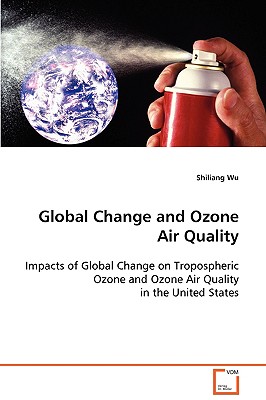Human activities such as the intensive use of fossil fuel have been imposing significant perturbations to the atmosphere and air quality on the global scale. Tropospheric ozone is important as a greenhouse gas, as a precursor for OH, the ultimate cleansing agent in the atmosphere, and as a surface air pollutant toxic to humans and vegetation. Global change in the coming decades, including climate change and changes in anthropogenic emissions can have potentially large effects on tropospheric ozone, on hemispheric transport of air pollution, and on air quality. This book studies these effects with a focus on ozone air quality in the United States. The current generation of global atmospheric chemistry models are intercompared and the factors controlling global ozone budgets are explored. It is demonstrated that the future climate change can degrade the U.S. ozone air quality by affecting the air pollution meteorology such as temperature and ventilation. The changes in anthropogenic emissions outside of the United States impose another challenge by enhancing the hemispheric transport of air pollution and hence background ozone.
| FindBook |
有 1 項符合
Global Change and Ozone Air Quality: Impacts of Global Change on Tropospheric Ozone and Ozone Air Quality in the United States的圖書 |
 |
Global Change and Ozone Air Quality: Impacts of Global Change on Tropospheric Ozone and Ozone Air Quality in the United States 作者:Wu 出版社:VDM Verlag Dr. Mueller E.K. 出版日期:2008-09-03 語言:英文 規格:平裝 / 120頁 / 22.9 x 15.2 x 0.8 cm / 普通級 |
| 圖書館借閱 |
| 國家圖書館 | 全國圖書書目資訊網 | 國立公共資訊圖書館 | 電子書服務平台 | MetaCat 跨館整合查詢 |
| 臺北市立圖書館 | 新北市立圖書館 | 基隆市公共圖書館 | 桃園市立圖書館 | 新竹縣公共圖書館 |
| 苗栗縣立圖書館 | 臺中市立圖書館 | 彰化縣公共圖書館 | 南投縣文化局 | 雲林縣公共圖書館 |
| 嘉義縣圖書館 | 臺南市立圖書館 | 高雄市立圖書館 | 屏東縣公共圖書館 | 宜蘭縣公共圖書館 |
| 花蓮縣文化局 | 臺東縣文化處 |
|
|
圖書介紹 - 資料來源:博客來 評分:
圖書名稱:Global Change and Ozone Air Quality: Impacts of Global Change on Tropospheric Ozone and Ozone Air Quality in the United States
|











